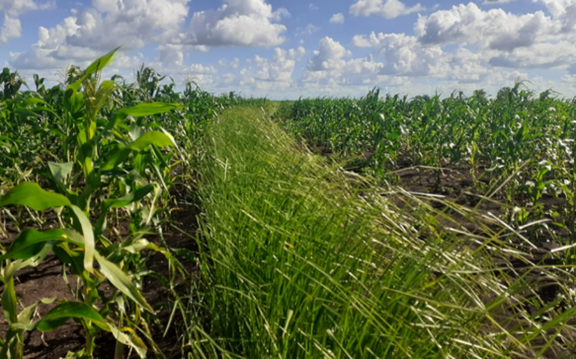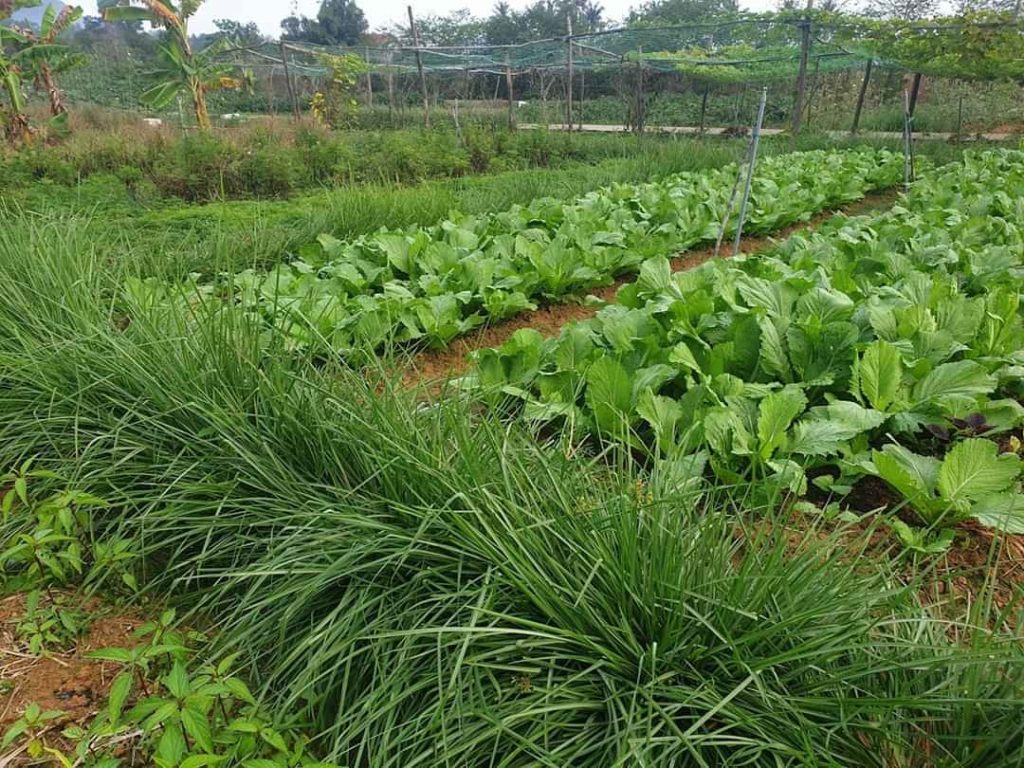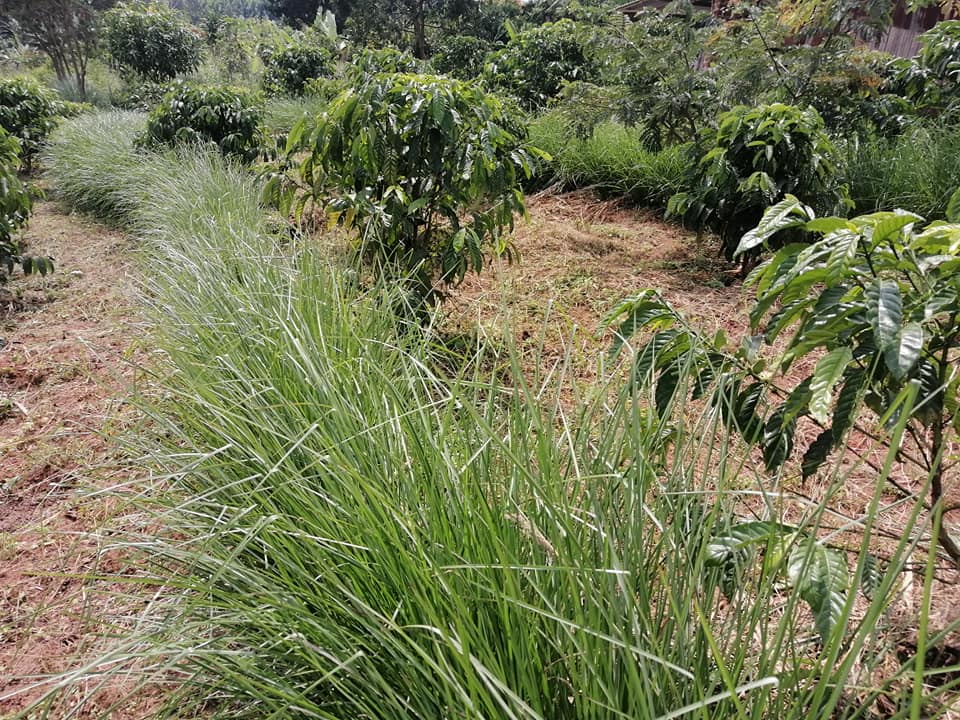VETIVER SYSTEM – AGRICULTURE
Introductory photo essay: VS_Agriculture.pdf (vetiver.org)
Embedding Vetiver Grass Technology into Farm Systems at Various Scales Under “Tropical”
And “Semi-Arid” Conditions TVN_Webinar_1o.pdf (vetiver.org).

The Vetiver System has many agricultural uses: soil and water conservation, soil moisture improvement, groundwater recharge, recycling soil nutrients, pest control, mulch, forage, cleanup of agricultural contaminated wastewater, protection of farm infrastructure (canals, drains, roads, and building sites). The Vetiver System will reduce soil loss from farmland by as much as 90% and will reduce rainfall runoff by as much as 70%, significantly increasing the effective rainfall available to crops. The impact goes further – groundwater is recharged to the extent that ephemeral streams flow longer and stronger, rejuvenated wetlands, improved wildlife habitat, and enhance soil health and fertility.

A good example of multi-purpose applications of the Vetiver System at farm level is from Madagascar – — Savonnerie Tropicale Huilerie de Melville (STHM) is the only certified organic palm oil plantation in Mascareignes Island and running a mill to manufacture certified Organic Crude Palm Oil on the East coast of Madagascar. The plantation, 3,000 Ha of land, has 180 km of road, 80 km of drains, and 30 km of riverbank. Vetiver, Chrysopogon zizanioides (South India type – sterile) was introduced in 2004 for soil and moisture conservation, and in particularly for drainage protection. Since then, STHM has extended the use vetiver for many activities such as riverbank protection, slopes stabilization, mulching…… This ideal plant, introduced in 2004 to the plantation by contract with CTHT (Centre Technique Horticole de Tamatave) to reduce erosion, increase soil keep moisture and to stabilize waterway protection. In 2005, STHM started serious work with Vetiver with the intention of substituting previous used costly cement and rock “hard systems” with vetiver’s fibrous and massive root system thus saving significant expenditures.
In 2007, STHM used vetiver on “Ivondro” riverbank protection, following the company’s successful experience in drainage and waterway stabilization. Since 2008 STHM has supplied high quality vetiver to other companies that want to produce organic essentials oils, keep moisture in the soil, groundwater recharge, and slope protection. STHM is currently testing VS for treating Pam Oil Mill Effluent (POME).
TVNI has certified STHM as proficient in Nursery Propagation and Supply, Social and Water Conservation and Extension. STHM’s submission for certification is available and should be interesting for existing and potential vetiver users.


Photos 3 & 4 above. New vetiver plantings on <1% slope on black vertisols in Zimbabwe (Graham Dabbs) for soil and moisture conservation purposes subject to serious erosion and flooding under extreme weather conditions. These hedgerows are protecting small outreach African farms.


“Vetiver – A Farmer’s Friend” in Spanish with English subtitles has now been audio dubbed in Hindi (maintaining the English subtitles). Accessible at: https://youtu.be/-nvyJ9fu-d8
The most important applications and uses of vetiver grass for farms are described in more detail at: